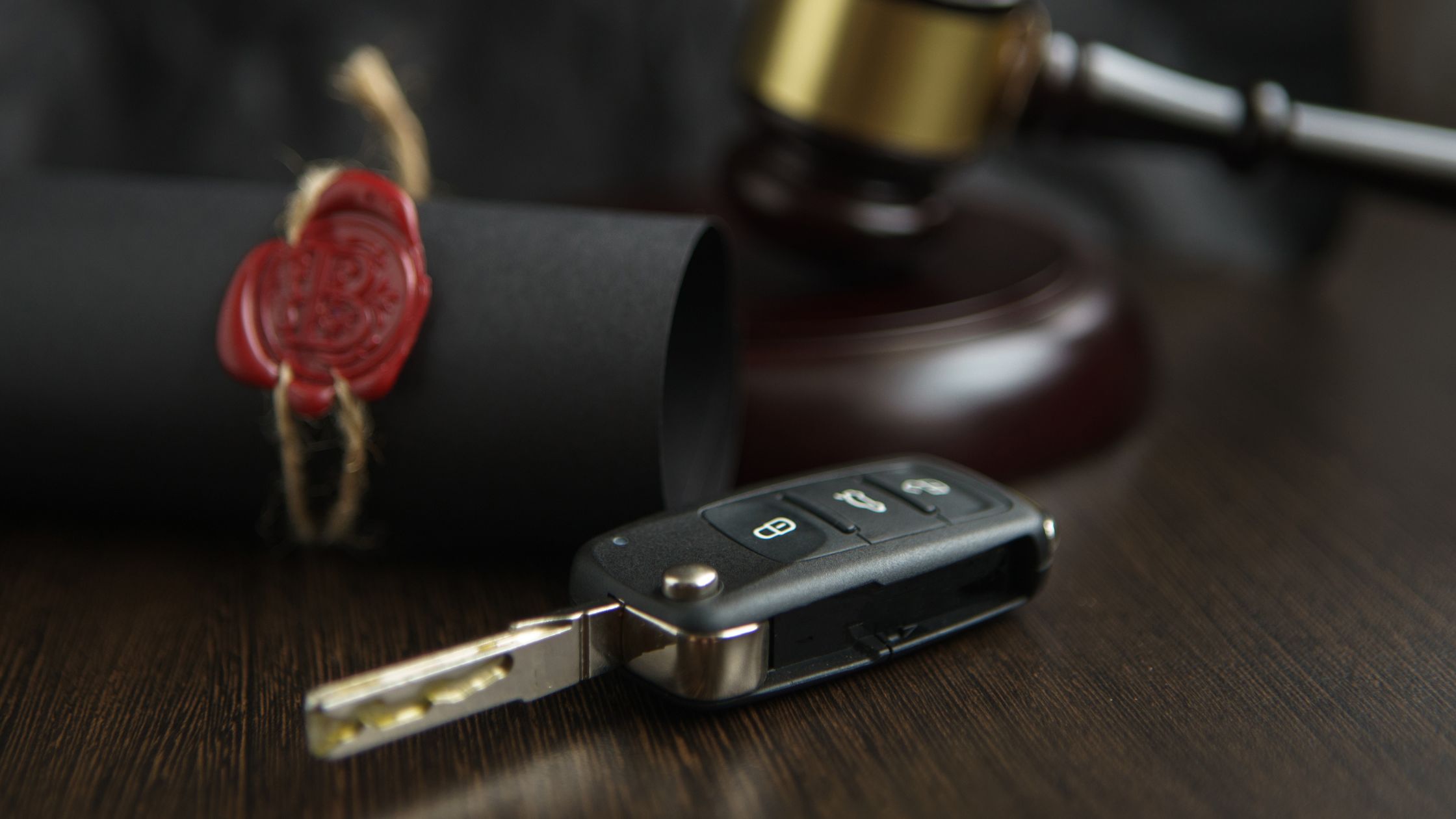Unraveling the Costs of Legal Help After an Accident
Being injured in an accident is a life-disrupting event. The physical pain, emotional distress, and financial burdens from medical bills and lost wages can leave you feeling overwhelmed. On top of everything, the legal system can seem complex and daunting, especially when considering how to pay a lawyer to fight for the compensation you deserve. This comprehensive guide will equip you with the knowledge needed to navigate the world of personal injury lawyer fees. We’ll explore everything from the most common payment structure to lesser-known options, addressing every aspect to empower you with informed decisions about legal representation.
The Contingency Fee System: Legal Help Without Upfront Costs
Most personal injury lawyers work on a contingency fee basis. Here’s a breakdown of how it works:
- Free Consultation: Most lawyers offer a free initial meeting to discuss your case and assess if they’re a good fit. Think of it as a chance to get to know each other and see if there’s a good working relationship.
- Success-Based Payment: You will only pay the lawyer upfront or out-of-pocket if they win your case and secure compensation for your injuries. This means no financial risk for you as you focus on recovery.
- Percentage of Settlement/Award: If successful, the lawyer receives a percentage of the settlement or court award you receive, typically ranging from 25% to 40%. Consider it a performance bonus for the lawyer’s successful work on your case.
- Covering Case Expenses: The lawyer typically covers the upfront costs of your case, such as investigation fees, expert witness testimony, and court filing fees. These expenses are deducted from the final settlement or court award before calculating the lawyer’s fee.
Benefits of Contingency Fees for You
The contingency fee system offers several advantages for clients:
Reduced Financial Burden: With no upfront costs or ongoing payments throughout the case, the contingency fee system provides relief, making legal representation accessible even if facing financial hardship due to the accident.
Focus on Healing: The assurance that you won’t pay unless they win allows you to focus on getting better and getting back on your feet, both physically and emotionally, knowing that your lawyer is fighting for your best interests.
Lawyer Incentive: Contingency fees incentivize lawyers to fight aggressively for the maximum compensation possible for their clients. Their success directly translates to your financial gain, giving you confidence in their dedication to your case.
Exploring Alternative Fee Structures
While contingency fees are the norm, some lawyers might offer other fee arrangements:
- Hourly Rate: The lawyer charges an hourly rate for the time spent working on your case. This can be a good option for simpler cases with predictable outcomes, where you can estimate the total cost beforehand.
- Flat Fee: A pre-determined flat fee is agreed upon upfront for specific services, such as filing a lawsuit or handling negotiations. This can be beneficial for cases with a limited scope of work.
Choosing the Right Fee Structure: It Depends
The best fee structure for your case will depend on various factors:
- Case Complexity: More complex cases involving liability disputes or multiple parties might require a contingency fee or hourly rate to account for the time and effort involved.
- Potential Value of Your Claim: A contingency fee might be more advantageous for high-value claims, as the lawyer’s financial reward aligns with yours. They’re more likely to invest significant resources into a case with a potential for a high payout.
- Your Financial Situation: An hourly rate or flat fee might be an option if you can afford upfront costs. Discuss your financial situation with a potential lawyer to determine the best fit for your needs.
Going Beyond the Basics: Additional Considerations
- Success Fee vs. Hourly Rate: While a contingency fee may seem appealing initially if your case is relatively straightforward and has a high chance of success, an hourly rate might be more cost-effective. Your lawyer can help you weigh each structure’s pros and cons based on your situation.
- Out-of-Pocket Expenses: Even with a contingency fee arrangement, there might be some out-of-pocket expenses you’re responsible for, such as travel costs or copying fees. Your lawyer will discuss these with you upfront, so there are no surprises.
- Lawyer’s Experience: Seek a lawyer with a proven track record of success in cases similar to yours. Experience translates to a better understanding of fees, how to negotiate with insurance companies, and how to navigate your specific type of case.
Beyond the Basics: Complexities and Nuances
The world of personal injury lawyer fees can have some complexities:
- Negotiating the Success Fee Percentage: While the standard contingency fee falls between 25% and 40%, there might be room for negotiation depending on several factors. For instance, a more complex case might warrant a slightly higher percentage for the lawyer due to the increased time and effort required. Conversely, a straightforward case with a high chance of success could lead to a slightly lower negotiation percentage. Open communication with your lawyer is key to understanding the fee structure and ensuring a successful and transparent legal process.
- Understanding Case Expenses: The types of case expenses the lawyer covers can vary. Common expenses include investigation fees, expert witness testimony, court filing fees, copying costs, and medical record retrieval fees. It’s crucial to get a detailed breakdown of potential expenses upfront and understand which ones will be deducted from the final settlement or court award before calculating the lawyer’s fee.
- Advancements: Sometimes, your lawyer might offer you an advancement or a loan against your potential settlement. This can help cover living expenses or medical bills while your case progresses. However, advancements typically come with interest charges, so it’s important to understand the terms and implications before accepting one.
Red Flags to Watch Out For When Choosing a Lawyer
- Guaranteed Outcomes: Beware of lawyers who guarantee a specific settlement amount or win rate. Every case is unique, and there’s no way to ensure a particular outcome. A reputable lawyer will focus on understanding your case and presenting the strongest possible argument for fair compensation.
- Pressure to Sign a Contract: A trustworthy lawyer will explain the fee structure and answer your questions before pressuring you to sign a fee agreement. Take your time making a decision. Get everything in writing and ensure you understand all terms before signing.
Unrealistic Fee Promises: If a lawyer offers an unusually low fee, it could be a sign that they lack experience or are unwilling to put in the necessary effort for your case. For example, if a lawyer promises to handle a complex personal injury case for a very low fee, it’s important to question how they plan to cover the necessary expenses and whether they are truly committed to your case. Experience and a strong track record are crucial when choosing a lawyer to fight for your compensation.
Conclusion
Understanding personal injury lawyer fees empowers you to make informed decisions about legal representation. The contingency fee system allows you to access legal help without upfront costs, allowing you to focus on recovery. By exploring different fee structures, considering your unique situation, and asking the right questions, you can choose the best approach for your case. Remember, the right lawyer can significantly impact the outcome and ensure you receive the compensation you deserve. Feel free to seek out a lawyer who makes you feel comfortable and confident in their ability to represent your interests effectively.
Frequently Asked Questions (FAQs)
1. What percentage of the settlement does a personal injury lawyer typically take?
The standard contingency fee for personal injury cases typically falls between 25% and 40% of the recovered amount. Your written fee agreement with your lawyer will outline the exact percentage.
2. Do I have to pay my lawyer if I lose my case?
No. This is one of the significant benefits of the contingency fee system. You only pay your lawyer if they win your case and recover your compensation.
3. What expenses are covered by a contingency fee?
The lawyer will typically cover upfront case expenses, such as investigation costs, expert witness fees, and court filing fees. These expenses will be deducted from the final settlement or court award before the lawyer’s fee is calculated.
4. What red flags do you watch when choosing a personal injury lawyer?
- Guaranteeing a specific outcome: Beware of lawyers who ensure a particular settlement amount or win rate. Every case is unique, and there’s no way to provide a particular result.
- Pressuring you to sign a contract immediately: A reputable lawyer will take the time to understand your case and answer your questions before pressuring you to sign a fee agreement.
- Unrealistic fee promises: If a lawyer offers an unusually low cost, it could be a sign that they lack experience or are unwilling to put in the necessary effort for your case.
5. What should I bring to my initial consultation with a personal injury lawyer?
- Accident Report: If a police report was filed regarding your accident, bring a copy.
- Medical Records: If you have received medical treatment for your injuries, bring copies of your medical records or a list of your doctors.
- Witness Information: If there were any witnesses to your accident, bring their contact information if possible.
- Photographs: If you have any photos of the accident scene, your injuries, or vehicle damage, bring them with you.
- Insurance Information: Bring your insurance policy information and any communications you’ve received from your insurance company.
- Questions: Come prepared with a list of questions for the attorney.
6. How long will my personal injury case take to resolve?
The timeframe for resolving a personal injury case can vary significantly depending on several factors, including:
- The severity of your injuries: More severe injuries typically require more extensive medical treatment and documentation, leading to a longer case duration.
- The case’s complexity: Cases involving liability disputes or multiple parties can take longer to resolve.
- Settlement negotiations: Negotiating a fair settlement with the insurance company can be time-consuming.
- Going to court: If a settlement cannot be reached and you need to file a lawsuit, the case will take significantly longer to resolve through the court system.
7. What can I do to expedite the resolution of my case?
- Seek medical attention promptly: A documented medical record of your injuries strengthens your case.
- Cooperate with your doctor: Following your doctor’s treatment plan demonstrates the severity of your injuries and aids recovery.
- Gather evidence: Collect proof of your accident, including witness statements, photos, and police reports.
- Respond promptly to your lawyer’s requests: Providing the lawyer with the necessary information helps them move your case forward efficiently.
8. What happens if the insurance company denies my claim?
If the insurance company denies your claim, don’t give up. Your lawyer can help you understand the reason for the denial and explore your options, which might include:
- Negotiating with the insurance company: Your lawyer can negotiate with the insurance company to try to reach a fair settlement.
- Filing an appeal: You may have the right to appeal the insurance company’s decision.
- Filing a lawsuit: If necessary, your lawyer can file a lawsuit against the at-fault party to recover compensation for your injuries.
9. What are some benefits of hiring a personal injury lawyer?
Hiring a personal injury lawyer offers several benefits, including:
- Legal expertise: An experienced lawyer understands the intricacies of personal injury law and can navigate the legal process effectively.
- Gathering evidence: Your lawyer knows what evidence is needed to support your claim and can help collect it.
- Negotiating with insurance companies: Insurance companies have experienced adjusters on their side. A lawyer can represent you effectively in negotiations to ensure you receive fair compensation.
- Protecting your rights: A lawyer can protect your legal rights throughout the process.
- Managing the case: Your lawyer will handle all the legal aspects of your case, allowing you to focus on recovery.
10. Can I handle my personal injury case myself?
While it’s technically possible to handle a personal injury case yourself, it’s not generally recommended. The legal system can be complex, and insurance companies have experienced adjusters who may try to take advantage of an unrepresented claimant. An experienced personal injury lawyer can significantly increase your chances of recovering the compensation you deserve.
11. What happens if I share some fault for the accident?
In some states with comparative negligence laws, your compensation may be reduced based on the percentage of fault attributed to you in the accident. For example, if you are found 20%
For more detailed information, visit the original article on Reiner, Slaughter & Frankel’s website.










